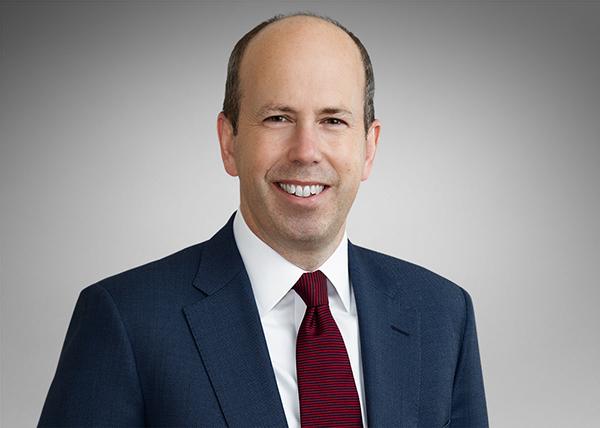On June 22, 2020, President Trump issued a proclamation titled “Proclamation Suspending Entry of Aliens Who Present a Risk to the U.S. Labor Market Following the Coronavirus Outbreak” (“June 22 Proclamation”). The June 22 Proclamation blocks the entry of foreign workers entering the United States on certain nonimmigrant visa categories, including H-1B, H-2B, H-4, L, and certain categories of J-1 visas. These prohibitions enter into effect at 12:01 a.m. EDT on June 24, 2020, and will remain in effect through December 31, 2020, with the potential for extensions thereafter. The June 22 Proclamation also extends the existing ban on certain immigrant entries through the end of the year, effective immediately. As discussed below, the June 22 Proclamation does not affect foreign nationals holding valid U.S. visas or other travel documents, or those already present in the United States as of the effective date of the ban.
Background
On April 22, 2020, President Trump issued Presidential Proclamation 10014, “Suspending Entry of Immigrants Who Present Risk to the U.S. Labor Market During the Economic Recovery Following the COVID-19 Outbreak,” which imposed a 60-day ban on individuals outside the United States from applying for entry into the United States under immigrant visas, with exceptions (“April 22 Proclamation”). The effect of the April 22 Proclamation was to bar new green-card applicants who do not live in the United States from admission into the country. The April 22 Proclamation did not apply to individuals outside the United States applying for non-immigrant visas. The April 22 Proclamation was set to expire 60 days from its April 23 effective date—that is, on June 22—but stated that it “may be continued as necessary.” The June 22 Proclamation both extends the duration of the April 22 Proclamation’s prior restrictions on immigrant visas and imposes new prohibitions on individuals seeking entry pursuant to a broad swath of nonimmigrant visas.
Individuals Prohibited from Entry into the United States under the June 22 Proclamation
The June 22 Proclamation excludes from entry any noncitizen who, subject to the exceptions discussed below, seeks entry pursuant to one of the following nonimmigrant visas:
- H-1B (specialty occupation)
- H-2B (temporary nonagricultural work);
- J (if participating in an intern, trainee, teacher, camp counselor, au pair, or summer work travel program); and
- L (intercompany transferee).
The June 22 Proclamation further excludes any noncitizen accompanying or following a noncitizen seeking entry pursuant to one of the above visas.
The ban on entry applies only to a noncitizen who:
- Is outside the United States on the effective date of June 24, 2020 (the “Effective Date”);
- Does not have a nonimmigrant visa that is valid on the Effective Date; and
- Does not have an official travel document other than a visa that is valid on the Effective Date or issued thereafter that permits the noncitizen to travel to the United States and seek entry or admission.
Individuals Not Covered By the June 22 Proclamation
The June 22 Proclamation specifically exempts certain noncitizens from its coverage:
- U.S. lawful permanent residents;
- Spouses or children of U.S. citizens;
- Noncitizens seeking to enter the United States to provide temporary labor or services essential to the U.S. food supply chain; and
- Aliens whose entry would be in the national interest, as determined by the Secretary of State, the Secretary of Homeland Security, or their designees.
The June 22 Proclamation tasks the Secretaries of State, Labor, and Homeland Security with establishing standards to define categories of noncitizens whose entry “would be in the national interest,” and gives the Secretaries of State and Homeland Security or their designees “sole discretion” to identify which noncitizens qualify for the “national interest” exception. The June 22 Proclamation tasks consular officers with determining whether nonimmigrants are eligible for the other exceptions described above.
The June 22 Proclamation also states that the Secretaries of State and Homeland Security “shall exercise the authority” under both the “national interest” provision of this Proclamation and section 2(b)(iv) of the April 22 Proclamation (which exempts the spouses of U.S. citizens) to exempt noncitizen children who would age out of eligibility for a visa due to the April 22 or June 22 Proclamations.
Other Measures
The June 22 Proclamation additionally mandates that several agencies take, or consider taking, additional measures. First, the Department of Health and Human Services (through the Centers for Disease Control and Prevention) is tasked with the providing guidance to the Departments of State and Homeland Security on measures to reduce the risk that noncitizens seeking admission or entry to the United States could spread COVID-19 within the country. Second, the Secretary of Labor, in consultation with the Secretary of Homeland Security, is directed to consider promulgating regulations or take other appropriate action to ensure that the presence in the United States of individuals holding or seeking EB-2, EB-3, or H-1B visas does not disadvantage U.S. workers, as well as to investigate, as appropriate, employers that the Secretary of Labor believes may not be complying with certain provisions of the Immigration and Nationality Act (“INA”) regarding the employment of H-1B visa-holders. Third, the Secretary of Homeland Security is charged with, among other things, considering whether to promulgate regulations or take other appropriate action regarding the efficient allocation of H-1B visas and ensuring that the presence in the United States of H-1B visa-holders does not disadvantage U.S. workers.
Stated Justification
The June 22 Proclamation asserts that these measures are necessary to respond to the economic consequences of COVID-19 and the public-health measures taken in response to that pandemic. The Proclamation states that foreign nationals, including millions of noncitizens who enter the United States under temporary visas, compete against American workers and are often accompanied by spouses and children that themselves compete for American jobs. The Proclamation cites as statutory authority Sections 212(f) and 215(a) of the INA, the same provisions on which the President relied in issuing Presidential Proclamation 9645, the version of the travel ban upheld by the Supreme Court in Trump v. Hawaii, 138 S.Ct. 2392 (2018).
We will continue to monitor and report on developments related to this issue. Please do not hesitate to contact the following Covington attorneys if you would like to discuss any aspect of the foregoing in further detail.
Back
Back











